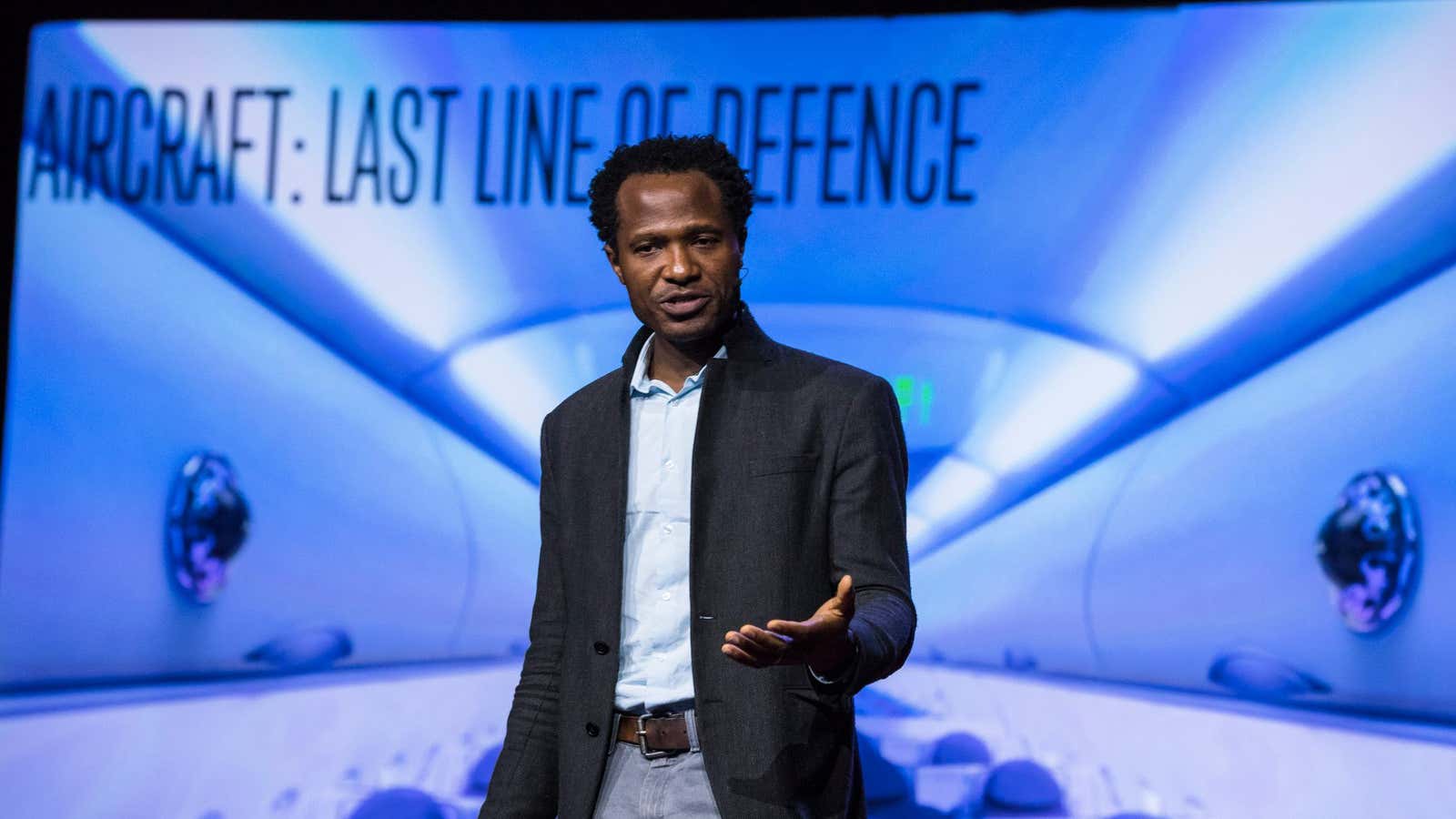The long security lines at airports could soon be history—if a new computer, based not on silicon but on live mice neurons, is adopted.
Oshiorenoya Agabi, a Silicon Valley-based neurotechnology entrepreneur, said that they have built a device that merges synthetic neurobiology with silicon. The modem-sized device, known as Koniku Kore, gives them an unprecedented ability to become aware of surroundings, sniff out explosives, and even detect cancer cells.
Agabi was speaking at TEDGlobal in Arusha, Tanzania, which brought together 700 researchers, innovators, and academics from all over the world to discuss Africa’s next big leap in technology, science, and politics. Agabi believes that artificial intelligence will “ultimately be accomplished by exclusive use of actual biological neurons.” Instead of copying them, he said, we need to take them and engineer them in order to build computers that think or work like humans do.
“Biology is technology,” he said. “Biology has the most extensive open source hardware and software.”
The role of artificial intelligence and what the creation of humanoid devices will mean for the future of the human race has proved contentious over the years. Elon Musk, the founder of Tesla and SpaceX, has even spoken of humans evolving into cyborgs, starting a medical research company Neuralink that aims to embed electrodes in people’s brains. The ethical decision-making of connected devices has also raised questions over how to program machines and whether humans can trust machines with moral decisions.
Agabi says the world should deploy as many resources to develop devices that would solve global problems like terrorism or cancer. Koniku, he said, was already building an assembly line for combining biological machines with silicon devices and creating an entirely new class of devices and a new market. Agabi said that major brands were already using his technology, with the company’s current $8 million revenue expected to increase to $30 million in 2018. The eventual goal, he added, was to build a cognitive system based on living neurons within 5 to 7 years.
“This is a world first,” Agabi said.
